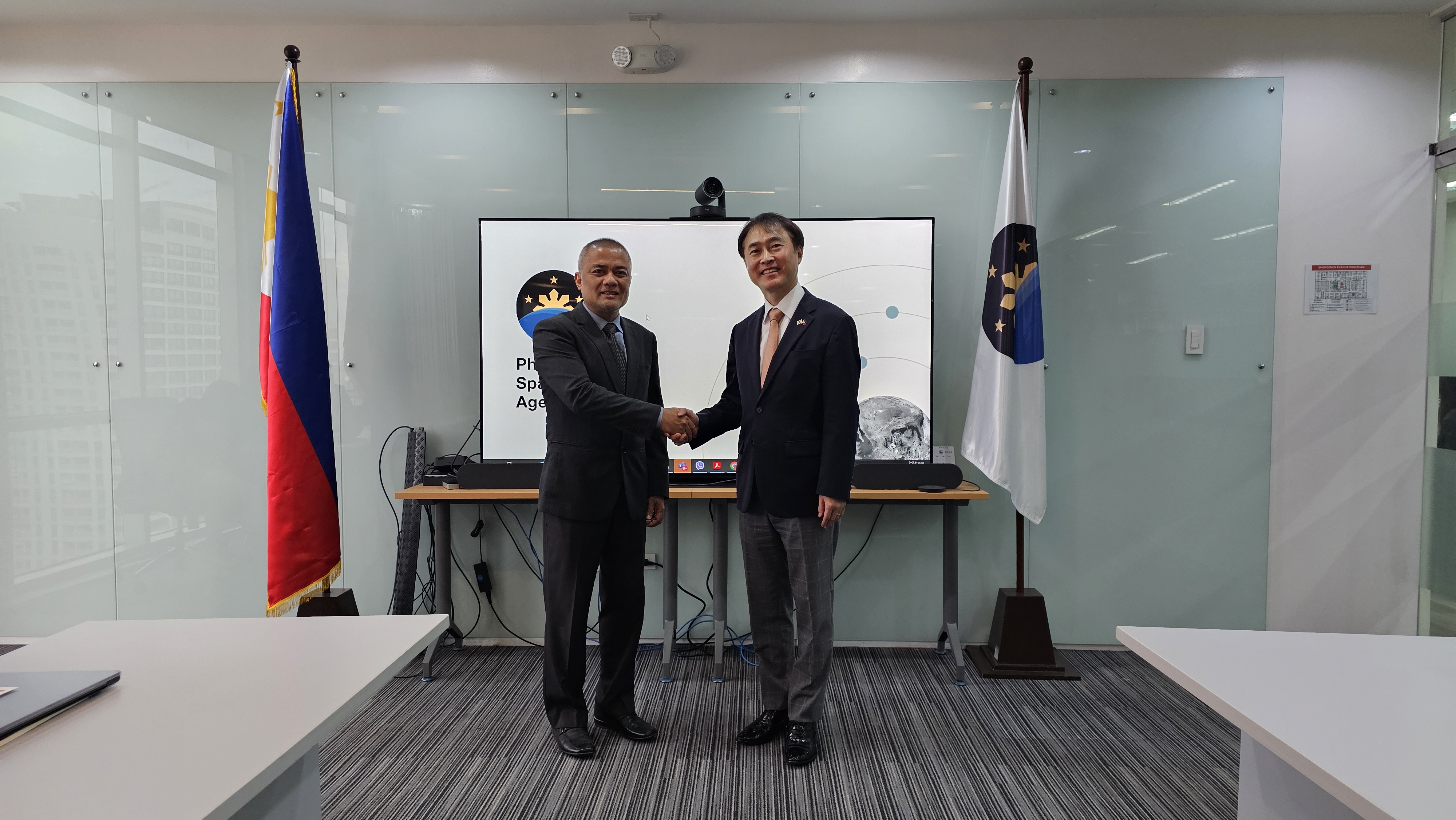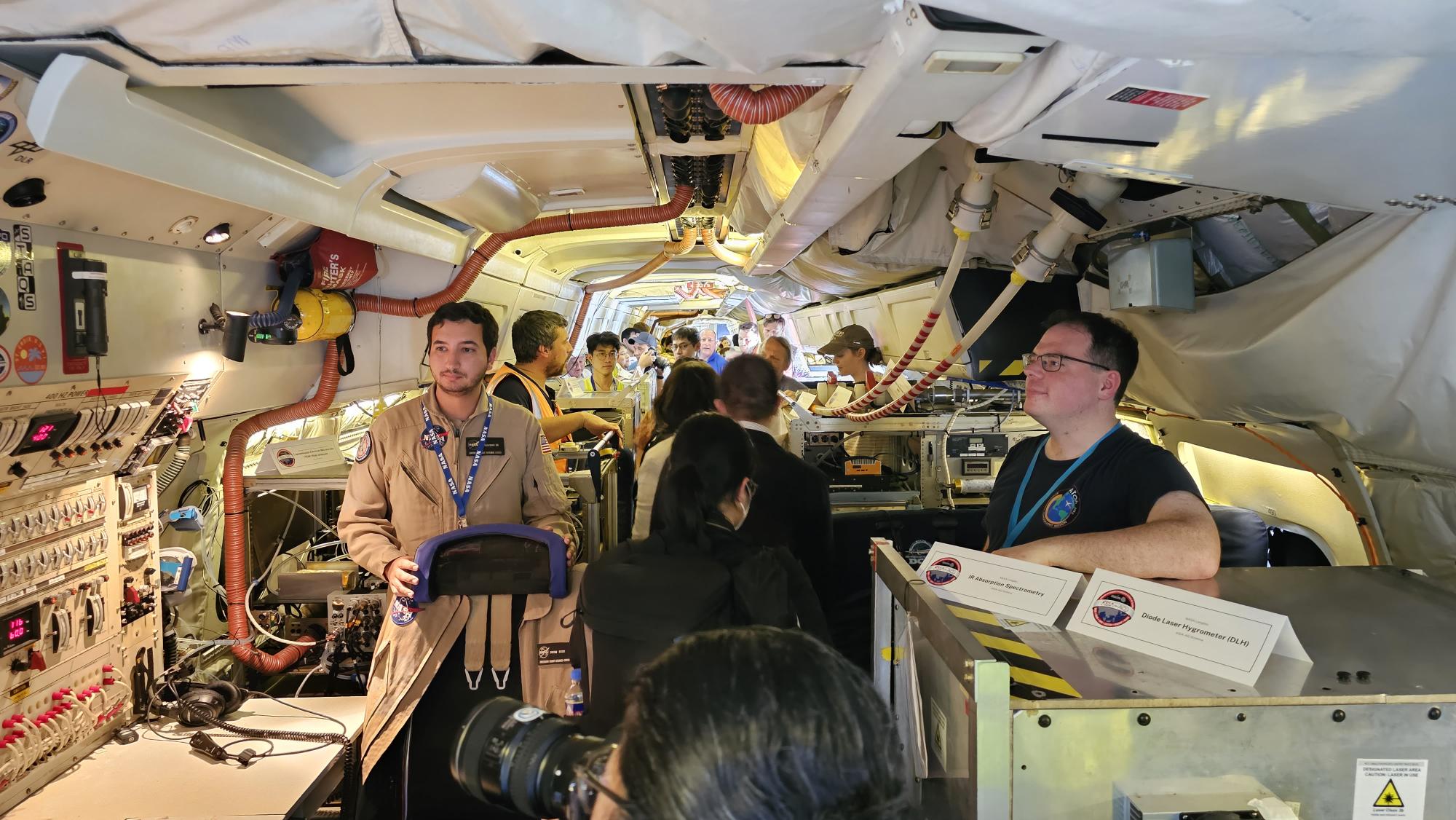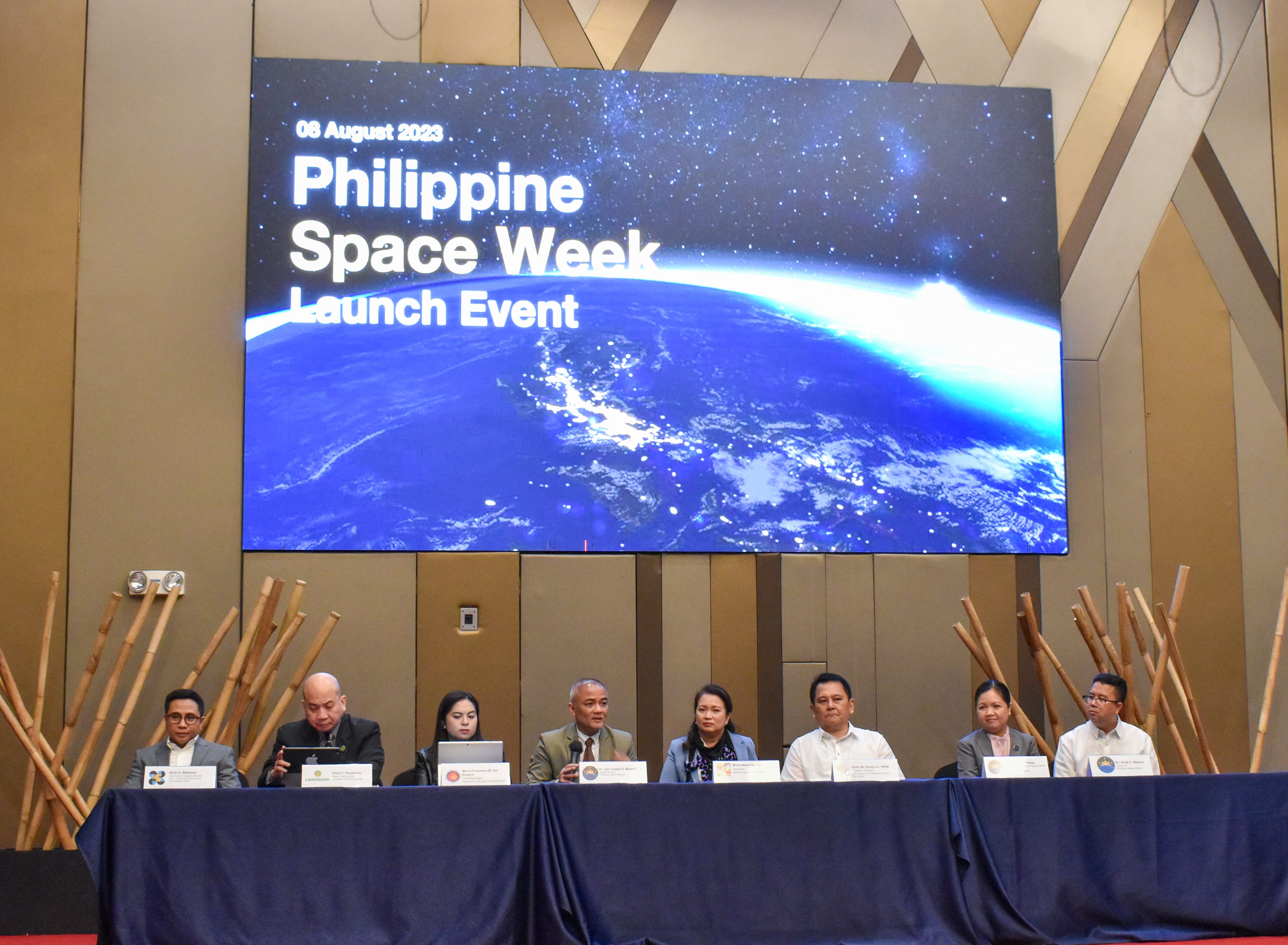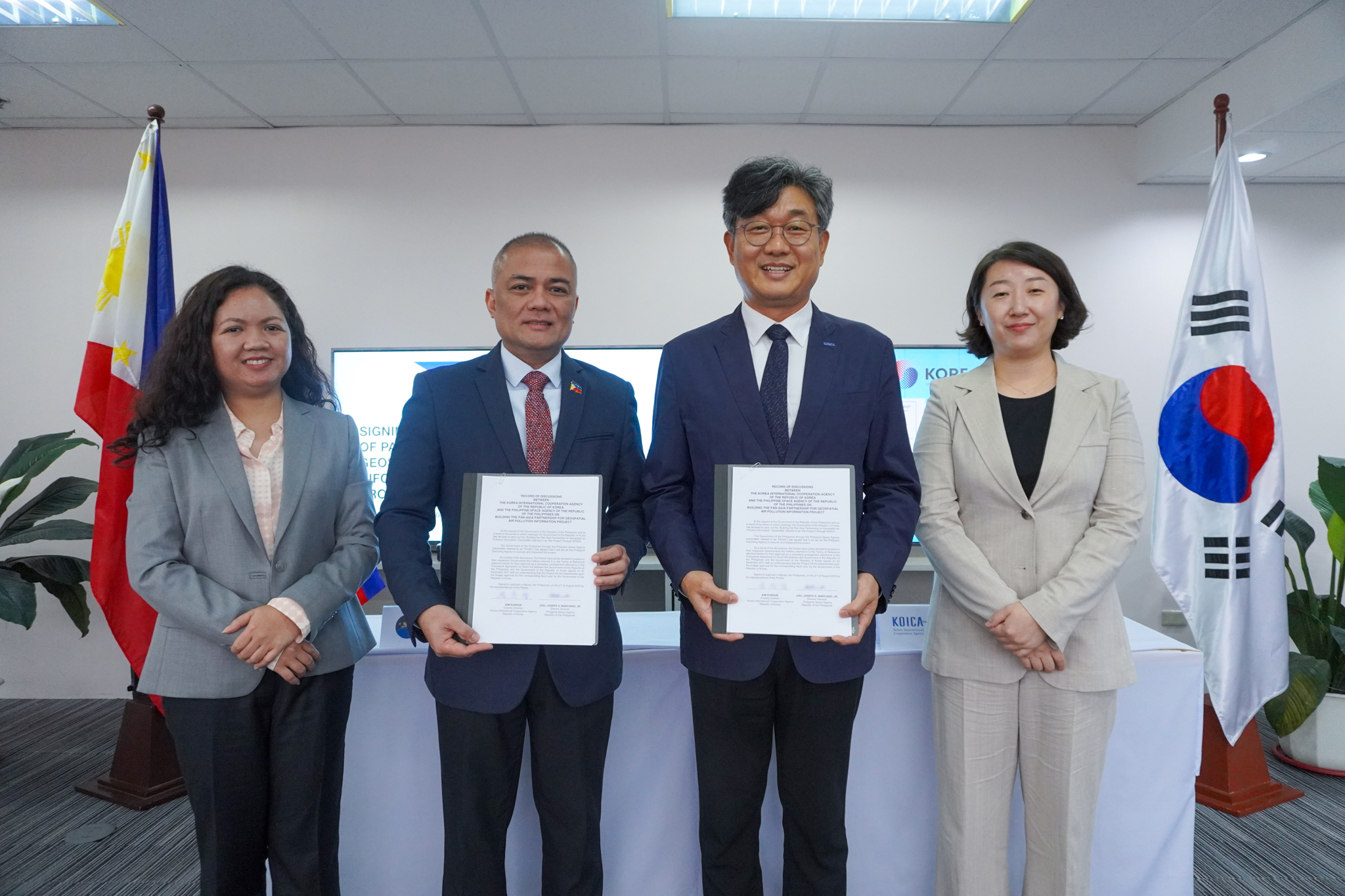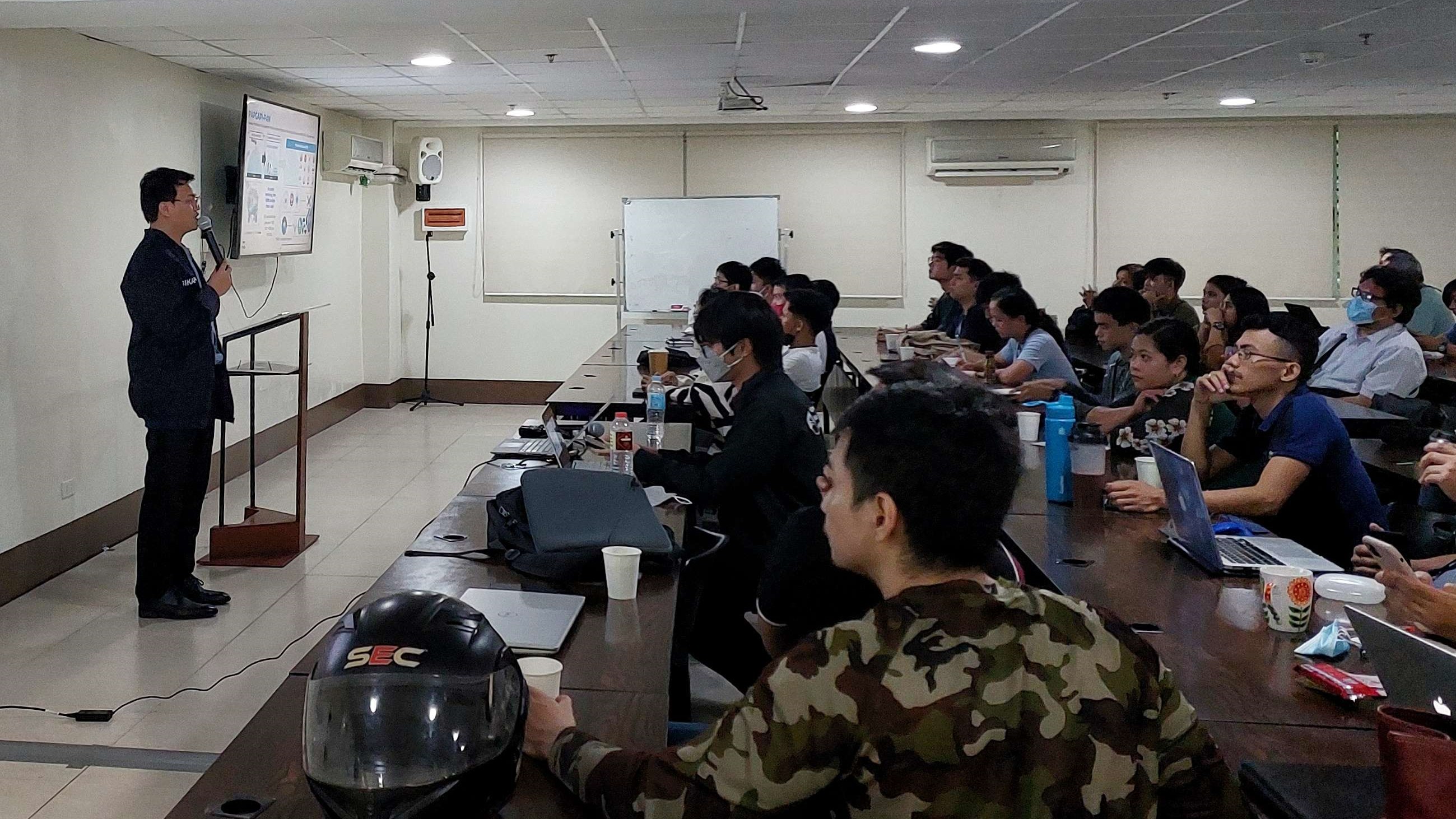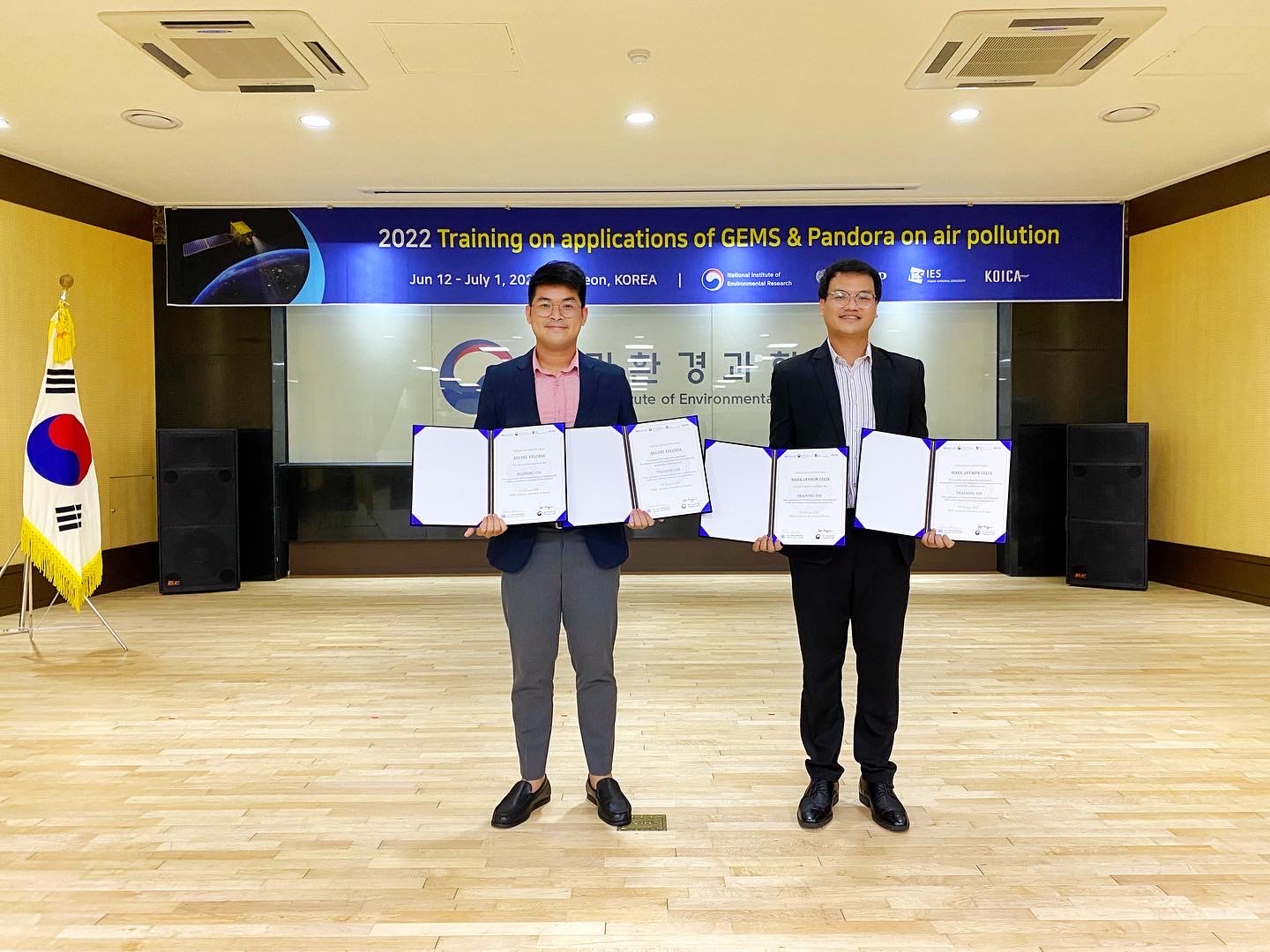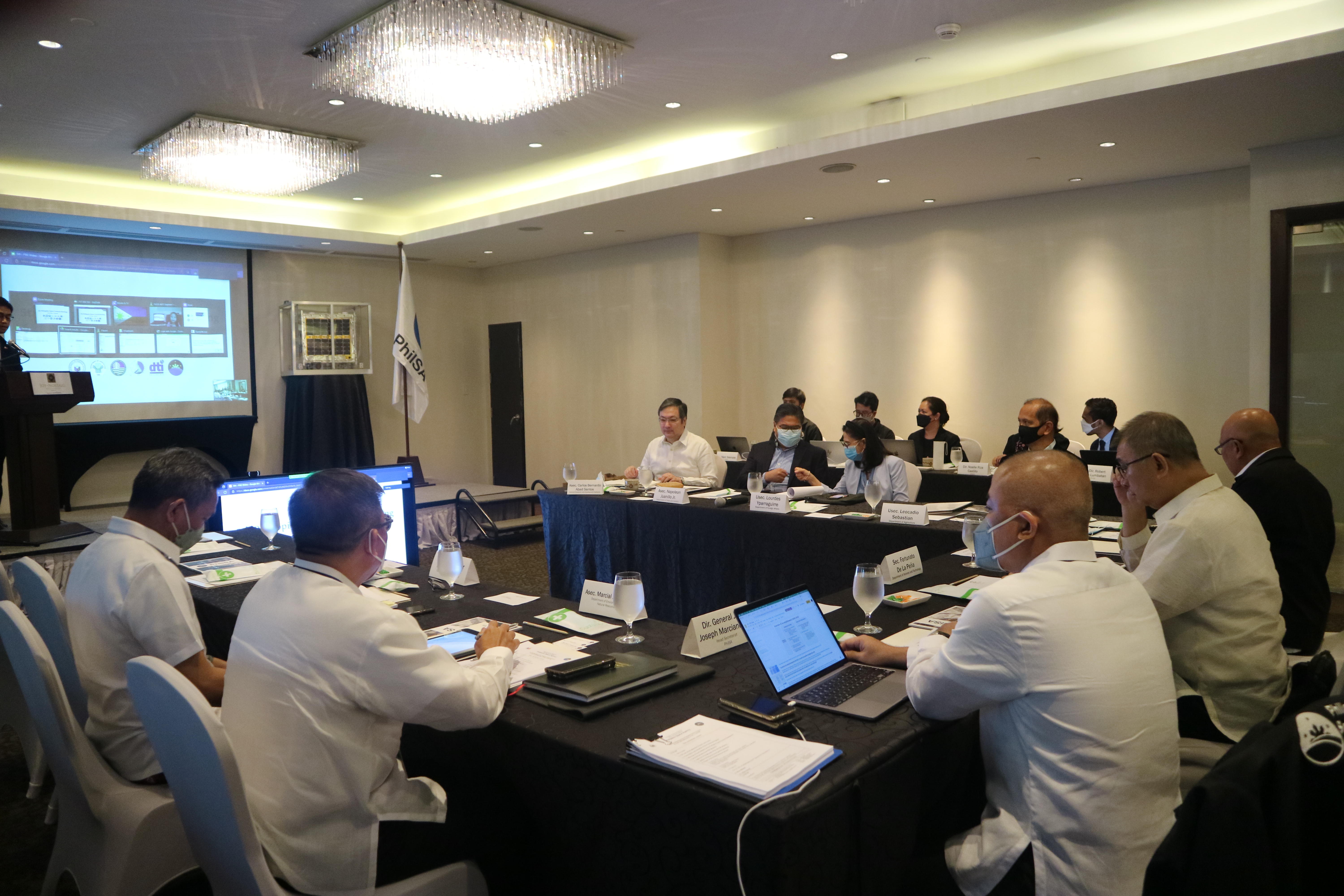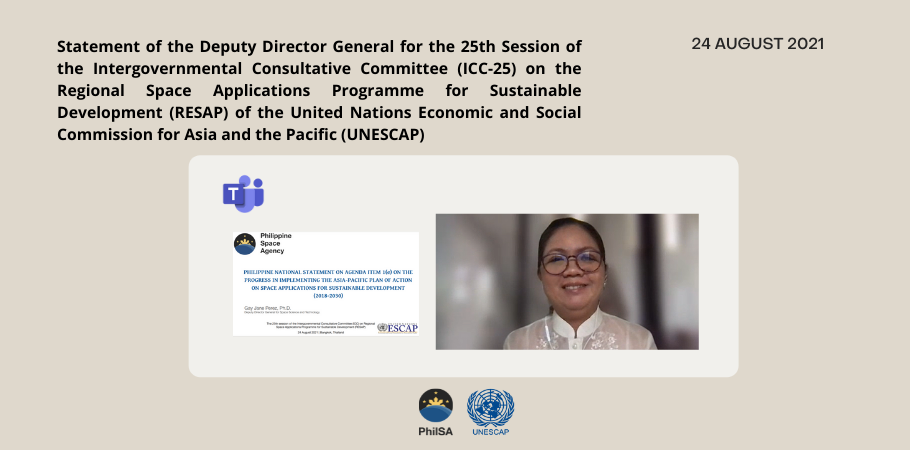Pan-Asia Partnership for Geospatial Air Pollution Information Project and the Pandora Asia Network (PAPGAPI-PAN) Philippines Project
The Pan-Asia Partnership for Geospatial Air Pollution Information Project and the Pandora Asia Network (PAPGAPI-PAN) Philippines Project is a technology transfer, data-sharing, capacity-building, and international cooperation initiative on air pollution. The project is possible with the support of the Republic of Korea (ROK) through the Korea International Cooperation Agency (KOICA) and the National Institute of Environmental Research (NIER). The United Nations Economic and Social Commission for Asia and Pacific (UNESCAP) and the Korea Environment Corporation (KECO) also serve as implementing partners. In the Philippines, the Philippine Space Agency (PhilSA) will serve as the lead executing agency for PAPGAPI-PAN.
PAPGAPI-PAN will monitor the condition of air quality in participating countries using data from the Geostationary Environment Monitoring Spectrometer (GEMS) aboard the GEO-KOMPSAT-2B Satellite and a network of ground-based remote sensing instruments for data validation called Pandora. Pandora, a Fiducial Reference Measurement (FRM), is a compact, modestly priced sun/sky/lunar passive UV/VIS grating spectrometer. It will monitor air quality and atmospheric composition in the region where it is installed and it will also serve as a tool to monitor satellite data quality for GEMS and LEO missions. Two (2) Pandora instruments will be deployed in the Philippines and will be part of the Pandora Asia Network (PAN).
PAPGAPI-PAN will provide participating countries with the information of key data products for air quality monitoring, (i.e., O3, aerosol and their precursors - NO2, SO2, HCHO and CHOCHO) measured as column density and possibly vertical profile, and various application techniques (surface concentration conversion, top-down emission and long-range transport flux estimation, etc.). GEMS field of view includes up to 20 Asian countries from India in the west to Japan in the east, from Indonesia in the south to Mongolia in the north.
The PAPGAPI-PAN project also aligns with the PhilSA’s Inclusive SSTA Know-How Utilization, Exchange, and Localization Activities (ISKUELA) initiative through conduct of national level capacity building activities intended to integrate satellite-based and ground-based products in decision making tools for air quality management.
PhilSA air quality project culminates with data processing workshop
The Philippine Space Agency (PhilSA) conducted the “Training on the Advanced Utilization and Applications of GEMS and Pandora for Air Quality Monitoring in the Philippines” from 05 to 06 December 2024 at the Oracle Hotel and Suites in Quezon City, Metro Manila. This follows the series of workshops and installations conducted under the Pan-Asia Partnership […]
Read MorePhilSA, KOICA turn over Pandora instruments for air quality monitoring to local operators
The Philippine Space Agency (PhilSA) and the Korea International Cooperation Agency (KOICA) marked a significant milestone in air quality monitoring, forecasting, and research with the ceremonial turnover of Pandora instruments on 12 August 2024 at the Heyden Hall, Manila Observatory during Philippine Space Week. Commemorating the growing partnership between the Republic of the Philippines and […]
Read MoreAmbassador of South Korea to the PH Lee Sang-hwa visits PhilSA office
H.E. Lee Sang-hwa, Ambassador of the Republic of Korea (ROK) to the Philippines, conducted a courtesy visit to Philippine Space Agency (PhilSA) Director General Joel Joseph S. Marciano, Jr. on 31 May 2024. Ambassador Lee was joined by Economic Counsellor Mr. Kwon Soon Hyun, Third Secretary & Vice Consul Ms. Lee Jong-mi, and Korea International Cooperation […]
Read MorePhilSA researchers join NASA, DENR on flying laboratory to test Ph air quality
Researchers from the Philippine Space Agency (PhilSA) were part of the select group of Filipino scientists and engineers who took part in the Philippine leg of the Airborne and Satellite Investigation of Asian Air Quality (ASIA-AQ) flights led by the US National Aeronautics and Space Administration (NASA) this February 2024. Dr. Julie Ann Banatao, Chief […]
Read MorePhilSA opens space week with landmark agreements promoting value creation through space
The Philippine Space Agency (PhilSA) opens the Philippine Space Week celebrations with the signing of five (5) landmark agreements envisioned to deepen space data acquisition and the use of space science and technology applications for value creation. This vision is in line with PhilSA’s fourth year anniversary theme, Yamang Kalawakan tungo sa Maunlad na Kinabukasan. […]
Read MorePh, Korea sign agreement to tackle Ph air pollution
The Korean government, through the Korea International Cooperation Agency (KOICA), and the Philippine Space Agency (PhilSA) signed a partnership agreement to strengthen national capacity to monitor the condition of air quality and improve air quality plans and policies in the Philippines on 02 August 2023. The Pan-Asia Partnership for Geospatial Air Pollution Information and the […]
Read MorePhilSA takes air quality training workshop to Cebu
Researchers from the Philippine Space Agency (PhilSA) conducted a training workshop on the utilization and applications of South Korea’s Geostationary Environment Monitoring Spectrometer (GEMS) satellite for air quality monitoring in the Philippines at the University of San Carlos-Talamban Campus (USC-TC), Cebu City on 31 May 2023. Over 70 faculty members, students, and university researchers involved […]
Read MorePhilSA conducts workshop on using Korean satellite for air quality monitoring
Remote sensing (RS) is an integral method in monitoring air quality to aid in mitigating the adverse effects of air pollution on public health and the environment. Satellites offer a vantage point to observe variables that complement readings from air quality sensors on the ground. One of these remote sensing tools that provide data on […]
Read MorePhilSA researchers train in new space-based air quality monitoring technology in South Korea
Two researchers representing the Philippine Space Agency (PhilSA) underwent intensive training on the newest air quality monitoring instruments from space last June 2022 in the Republic of Korea. Archie Veloria and Mark Jayson Felix from the PhilSA Earth Sciences Space Mission Studies Division took part in the program, “Data applications of Pandora spectrometer instrument and […]
Read MorePSC members meet, seek expansion of local space industry
The Philippine Space Council (PSC) convened for the 5th PSC Meeting on 25 April 2022. The Philippine Space Agency (PhilSA), as the secretariat, hosted the first face-to-face meeting of the incumbent council. The meeting was chaired and called to order by Chair-designate Secretary Fortunato T. de la Peña of the Department of Science and Technology […]
Read More4th Space Council meet, bolster inter-agency cooperation for SSTA in Ph
Members of the Philippine Space Council (PSC) convened for the 4th Philippine Space Council Meeting on 07 December 2021. The meeting was hosted by the Philippine Space Agency (PhilSA) as council secretariat, and was conducted in a hybrid set-up. The meeting was chaired and called to order by Chair-designate Secretary Fortunato Dela Peña Jr., of […]
Read MorePhilippine National Statement on Agenda Item 1(e) on “The Progress in Implementing the Asia-Pacific Plan of Action on Space Applications for Sustainable Development (2018-2030)” at the 25th Session of the Intergovernmental Consultative Committee (ICC-25)
Philippine Space Agency (PhilSA) Deputy Director General Gay Jane P. Perez delivered the Philippine National Statement under Agenda Item 1(e) on “The Progress in Implementing the Asia-Pacific Plan of Action on Space Applications for Sustainable Development (2018-2030)” on 24 August 2021 during the 25th Session of the Intergovernmental Consultative Committee (ICC-25) on the Regional Space […]
Read More





